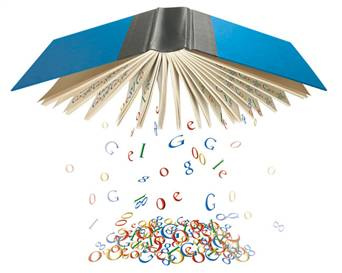When many people say how many of Sachin's hundreds have come for a winning cause, here is analysis of each of those centuries he scored when INDIA lost and reason why it went in vain.
 Sachin Tendulkar gets to yet another century but India end up on the losing side - How many times have we seen that?
Sachin Tendulkar gets to yet another century but India end up on the losing side - How many times have we seen that?
While there would be the Tendulkar bashers and critics who say that India lose a match whenever Sachin scores a century, the statistics prove otherwise.
Out of the 48 hundreds, We won 33 , Tied 1, Draw 1. And we lost only 13.
1. 137 off 137 (Strike rate 100) balls Vs SriLanka at Delhi in 1996 World Cup.
India scored 271/3 in 50 overs. The only other 50 score was from Azhar. SL made 272 in 48.4 overs. Manoj Prabhakar had 4-0-47-0. He also opened in the innings and scored 7 of 36 balls.
2. 100 of 111 Balls Vs Pak in Singapore - Apr 96.
India 226 all out in 47.1 overs, When Sachin was out score was 186/4 (We cant blame because next 3 are match fixtures). Pak had a reduced target of 187 from 33 overs.
3. 110 of 138 Balls (Slower but...) vs Sri Lanka In Colombo - Aug 96
Again India 226 for 5 in 50 overs, Only other 50 score from Azhar (58 of 99 balls !!!). Sachin has also bowled 6-0-29-1, the second most economical bowler and the only wicket taker (SL were 230/1 in 44.2 ) of the match next to Srinath. Seven bowlers were used by Azhar.
4. 143 of 131 Balls (!!!) Vs Aus at Sharjah, Apr 1998
This was chasing under lights. The qualifying match before the final. The whole world knows about this match. Still one interesting point, when Sachin was out India were 242 at 5 at 43 overs. Target was 276 in 46. Still India finished at 250/5 scoring just 8 of the next 3 overs.
5. 101 of 140 Balls against SL at Sharjah , Oct 2000.
Indian score was 224/8 in 50 overs. (No other 50 score). SL got 225/5 in 43.5, Sachin also bowled 5-0-22-0, better economy rate than everyone except Srinath.
6. 146 of 153 Balls against Zimbabwe at Jodhpur , December 2000
India made 283 / 8 in 50 overs. Sachin was the last man to be dismissed, score was 235/8 at 46.3 overs when he was out. Agarkar and Zaheer Khan propelled India to 283 in the last 3.3 overs.
When Sachin has scored 146 of 235 in 46.3 overs, you can guess what the other 8 great batsmen were doing against the World class Zimbabwe attack. Second Highest scorer was Zaheer Khan with 32.
Zim got 284/9 in 49.5 overs. Kumble bowled the last over. Sachin also got 6-0-35-1
7. 101 of 129 Balls Vs SA at Johannesburg , Oct 2001
India got 279/5 in 50, Ganguly made 127 of 126 balls. When Ganguly got out, the score was 193-1 in 35.2 overs. Sachin was the last man to get out at 263. SA got 280 in 48.4 overs. Sachin bowled 9-0-51-0, second best in economy rate next only to Agarkar (10-0-45-1)
8. 141 of 135 balls Vs Pak at Rawalpindi, March 2004.
India were chasing 329 and were 317 all out in 48.4 overs, 8 balls to spare. No other batsman made even a 50 (when chasing 300 ) and when Sachin was out, India were 245-4 in 38.4 overs. They needed 85 from 68 balls with 6 wickets in hand.
9. 123 of 130 Balls Vs Pak at Ahmedabad, April 2005.
India made 315/6 in 48 overs (48 over match), again no other 50 score. Second highest was Dhoni 47 of 64 balls, (third highest was extras - 39). Pak made 319 in 48 overs. The three quicks (Balaji, Nehra and Khan went for 188 runs from 26 overs between them taking only 2 wickets). Sachin bowled 6-0-36-1. No Harbhajan and no Kumble.
10. 100 of 113 Balls Vs Pak at Peshawar, Feb-2006.
India were 328 all out in 49.4 overs. Pathan and Dhoni got 60 each. When Sachin was out when India were 305-5 in 45 overs. Managed only 23 in the last five overs. Pak scored 311/7 in 47 overs and won by D/L method. Could have been anybody's game. Sachin did not bowl.
11. 141* of 148 Balls Vs WI , Malaysia.
India made 309 /5 in 50 overs. Sachin was not out. Pathan was the only other 50 scorer. WI made 141/2 in 20 overs and won by D/L method. Again could have been anybody's game.
12. 175 of 141 Balls vs Australia at Hyderabad, 5th Nov 2009.
India needed 351 to win. And at the End, lost by 3 Runs. Spare a thought for Sachin Tendulkar. He seemed to have done everything possible but didn't last the final lap. Only Raina scored along with him…made 59…and other Players just Enjoyed Sachin’s batting.
13. 111 of 101 Balls Vs South Africa at Nagpur , 12th March 2011.
India were 267/1 and at the end all out for 296. When Sachin got out after scoring 111, India only managed to score 30 Runs with lost of 9 Wickets.
This Proved how good Sachin’s hundreds were! Hope people will stop laughing now.
 And the celebratory spirit of the event was remarkable given the backdrop of recent relations between to the two Asian rivals. The uneasy neighbors have fought three wars since the blood-soaked partition of the subcontinent in 1947, and recent peace talks were shattered in November 2008 when ten gunmen attacked Mumbai, killing 164 people and wounding hundreds more.
And the celebratory spirit of the event was remarkable given the backdrop of recent relations between to the two Asian rivals. The uneasy neighbors have fought three wars since the blood-soaked partition of the subcontinent in 1947, and recent peace talks were shattered in November 2008 when ten gunmen attacked Mumbai, killing 164 people and wounding hundreds more.





























